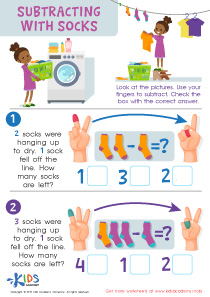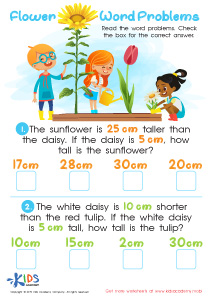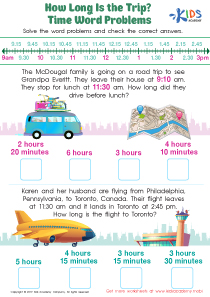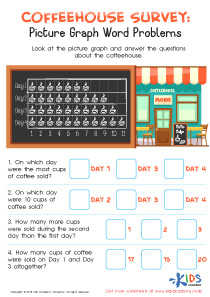Easy Two-step Word Problems Worksheets for Ages 3-6
5 filtered results
-
From - To
Nurture early math skills with our "Easy Two-step Word Problems Worksheets for Ages 3-6." Specially designed for young learners, these engaging worksheets simplify complex concepts through fun scenarios and friendly illustrations. Children develop critical thinking and problem-solving abilities by tackling relatable two-step word problems. Each worksheet is crafted to foster confidence and a love for learning. Ideal for home or classroom, our printables make mastering early math exciting and rewarding. Explore our collection and watch your child’s progress flourish as they grasp the foundational skills needed for future mathematical success. Download now to ignite a passion for math!
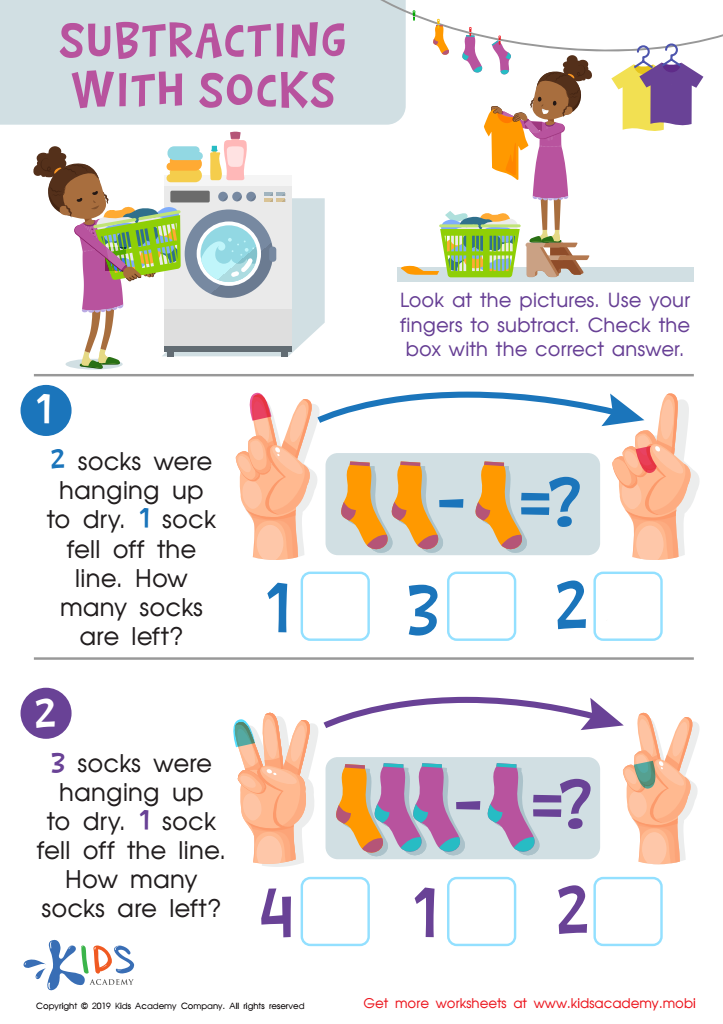

Subtracting Socks Worksheet


Counting Seedlings Worksheet
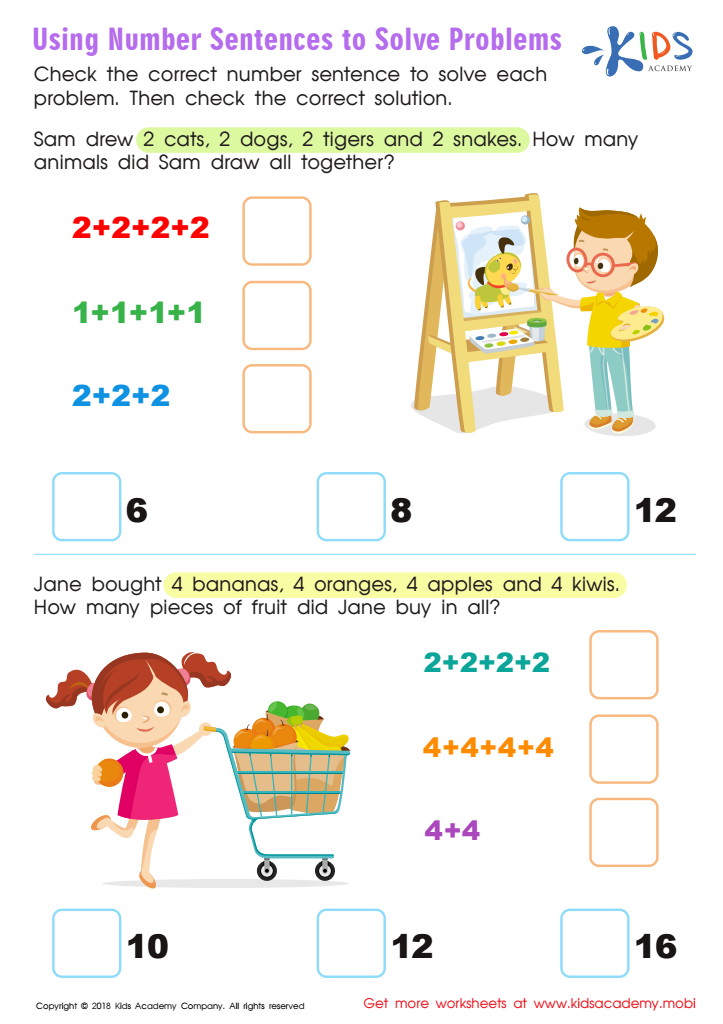

Using Number Sentences to Solve Problems Worksheet
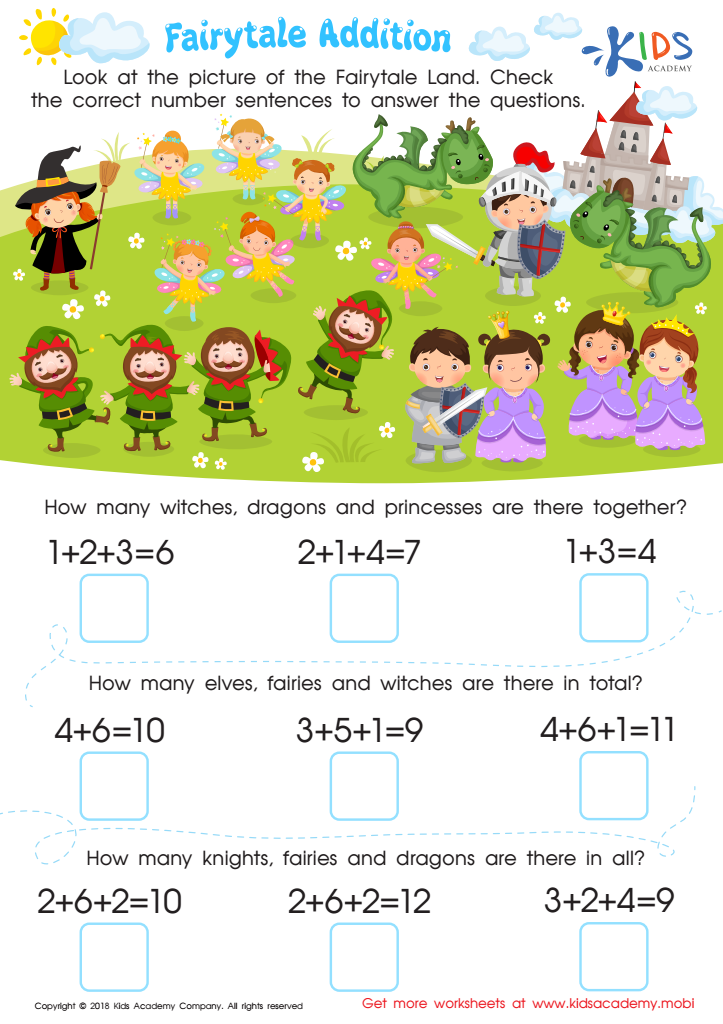

Fairytale Addition Worksheet
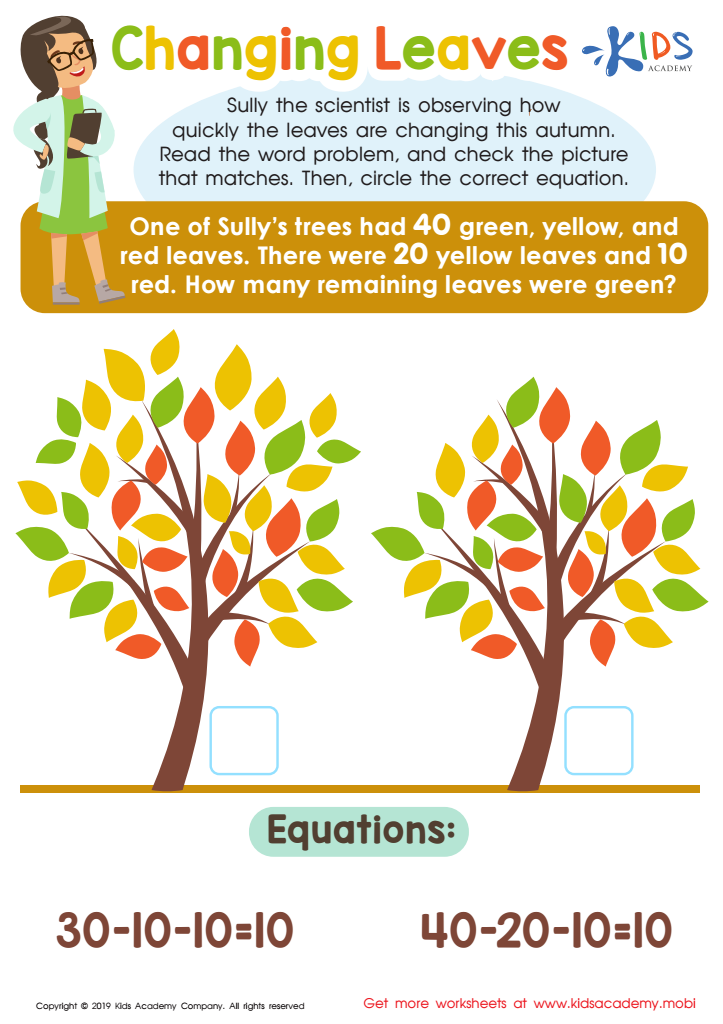

Changing Leaves Worksheet
Early exposure to easy two-step word problems is immensely beneficial for children aged 3-6, and parents and teachers should prioritize this. First, solving these problems nurtures critical thinking skills. Young children learn to break down complex information into simpler parts, fostering analytical thinking that is crucial for their academic future.
Additionally, these exercises enhance early math skills, including basic addition and subtraction. Understanding numbers and simple math operations at a young age builds a strong foundation for more advanced mathematical concepts they'll encounter later.
Moreover, two-step word problems help to develop children's language and comprehension abilities. By interpreting the written aspect of problems, kids improve their reading skills and expand their vocabulary. This language development is interwoven with problem-solving, reinforcing both literacy and numeracy.
Another crucial aspect is boosting confidence and perseverance. Successfully solving word problems provides a sense of achievement, encouraging children to tackle challenges and persist despite difficulties.
Finally, incorporating these problems into a child’s routine can make learning enjoyable and engaging. Fun, relatable scenarios in word problems turn abstract math into a practical, enjoyable experience.
Therefore, introducing easy two-step word problems at an early age cultivates a well-rounded, resilient, and capable young learner, setting the stage for long-term academic success.

 Assign to the classroom
Assign to the classroom


